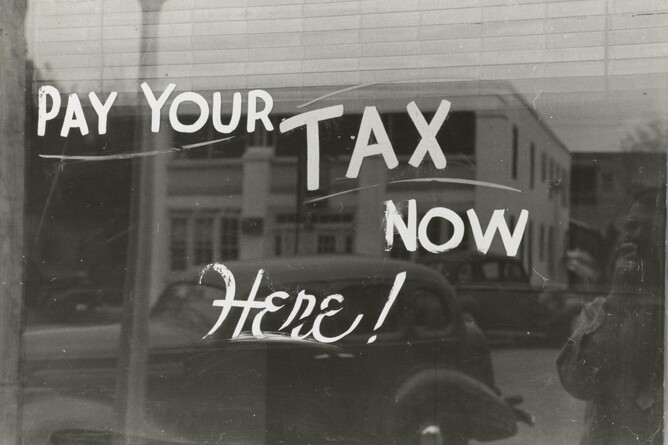Provisional tax is a way of managing your income tax by paying instalments during the year on the tax due for the coming year.
COVID-19 and provisional tax
This post sets out the normal rules for provisional tax. COVID-19 has created exceptional circumstances and some exceptional tax relief measures have been introduced:
- The RIT threshold for provisional tax increased from $2,500 to $5,000 from the 2020/21 tax year
- Depreciation for commercial and industrial buildings is reintroduced from the 2020/21 income year. If you are a building owner, you will be able to adjust provisional tax payments immediately in anticipation of additional deductions that become available
- If your business is affected by COVID-19 and:
- you need to re-estimate your provisional tax as your income falls short of the estimate and provisional tax has been overpaid, it may be possible to arrange early refunds
- if you are unable to pay tax by the due date, Inland Revenue has discretion to write-off penalties and interest. When in a position to do so, you should indicate when tax can be paid, or request instalment arrangements. You may be eligible for a UOMI write off.
It’s important to keep your tax plan current. If circumstances change for your business, we need to adjust your plan. Let us know as soon as you can about the situation for your business.
You may be liable for provisional tax
If the tax to pay on your last income tax return is more than $5,000, you may have to pay provisional tax for the following year. You will not be required to pay provisional tax so long as your previous year’s residual income tax (RIT) is $5,000 or less.
The number of provisional tax instalment payments you make depends on how you work out your provisional tax. If you’re GST registered, how often you file GST returns will determine how many provisional tax instalments you’re required to make.
Even if you are not required to pay provisional tax, you may still elect to do so.
What is residual income tax (RIT)?
Residual income tax is the amount of tax you have to pay, less any tax credits you may be entitled to and any PAYE deducted. RIT is used to calculate the amount of provisional tax you are required to pay.
What happens if I don’t pay provisional tax?
If you are liable for provisional tax and you don’t pay, or you underpay or pay late, you may incur both penalties and use of money interest (UOMI). Some methods of calculating provisional tax will give you some protection from use of money interest.
Calculating your provisional tax
You can use one of these options to work out your provisional tax (See the table at the end for detail):
- Standard
- Estimation
- GST Ratio – only if you’re registered for GST
- Accounting Income Method (AIM)
When do you have to pay provisional tax?
The number of times you need to pay provisional tax each year depends on the option you use to calculate your provisional tax, and how many times you pay GST (if registered). If your balance date is 31 March and you use the standard or estimation options to calculate your provisional tax payments, your provisional tax due dates are:
| Not registered for GST | GST registered and pay monthly or bi-monthly | GST registered and pay 6 monthly | |
| 1st instalment | 28 August | 28 August | 28 October |
| 2nd instalment | 15 January | 15 January | 7 May |
| 3rd instalment | 7 May | 7 May |
If you use the GST ratio option, you pay your provisional tax and GST at the same time on a combined GST and provisional tax return. If your balance date is 31 March, your provisional tax due dates are:
| 1st instalment | 28 June |
| 2nd instalment | 28 August |
| 3rd instalment | 28 October |
| 4th instalment | 15 January |
| 5th instalment | 28 February |
| 6th instalment | 7 May |
Safe harbour taxpayer & GST Ratio taxpayer: use of money interest
A safe harbour taxpayer is a taxpayer who:
- uses the standard method for determining his or her RIT for the current year
- has RIT for the current year which is less than $60,000, and
- has not, during the tax year, held a certificate of exemption from resident withholding tax
As a safe harbour taxpayer, you will not have use of money interest to pay, unless you fail to meet your terminal tax obligations. If you choose to opt out of the safe harbour by estimating your provisional tax, you will be subject to use of money interest on any underpayment of provisional tax from your first instalment date.
If you used the GST ratio option to determine your provisional tax payments for the whole year you will be safe harboured from use of money interest if your payments fall short of the year-end liability.
Note that if you are a safe harbour taxpayer or use the GST ratio option you will not be entitled to receive use of money interest if you overpay provisional tax during the year.
Election to be a provisional taxpayer
Even if you are not required to pay provisional tax you may elect to become a provisional taxpayer. You will be eligible to do this if you have paid income tax of more than $5,000 and if you had the expectation on the date you made the first payment that you would be a provisional taxpayer for that year. The election is made in the relevant annual tax return.
If you pay provisional tax and subsequently find that you were not required to do so you may receive use of money interest on your overpaid tax. In this case, use of money interest will run from the day after the date of payment. If you are a safe harbour taxpayer, you will not receive use of money interest.
Voluntary payments of provisional tax
It may be to your advantage to make voluntary provisional tax payments. This will help reduce use of money interest charges on any known tax shortfalls. If you are a safe harbour taxpayer, you can avoid making an estimation as well as any liability for use of money interest.
While voluntary payments will earn interest, it is typically at a lower rate than interest rates offered by commercial banks. The Inland Revenue’s current overpayment rate is 0.81%.
Penalties and interest for unpaid provisional tax
| Late payment penalties | How much | When charged | Calculated on |
| initial | 1% | day after due date | Tax owed |
| 4% | at end of 7th day after due date | Tax + penalties owed |
Late payment penalties and use of money interest (UOMI) apply to underpaid provisional tax.
Late payment penalties do not apply if the unpaid tax is $100 or less.
Late payment penalties are only calculated once your actual RIT liability for the year is known. This is because a late payment penalty will only arise on unpaid provisional tax to the extent that your provisional tax payable exceeds your provisional tax paid. The amount of provisional tax payable will be the lesser of
- the amount of provisional tax calculated as payable (under the chosen method applied); and
- the appropriate proportion of your RIT for the year
Use of money interest also applies on underpayments and overpayments of provisional tax from the day after your first provisional tax payment is due if you are not a safe harbour taxpayer. The interest rate currently charged by Inland Revenue on unpaid tax is 8.35% and the interest rate paid by Inland Revenue on overpaid tax is 0.81%.
Provisional taxpayers using the standard uplift method will not be liable for UOMI on the first two provisional tax instalments, but interest will be payable on any total shortfall or overpayments of provisional tax calculated from the third instalment date. As the third instalment falls after the end of the income year, if the tax liability can be accurately calculated, the correct amount of provisional tax can be paid at the third instalment to reduce the exposure to UOMI.
Early-payment discount for new small businesses
If you are self-employed or a partner in a partnership you may be entitled to a discount of 6.7% of the amount of income tax payable on income received (provided the income arises from a business, i.e. not interest, dividends, royalties, rents or beneficiary income) before the income year in which you are due to pay provisional tax for the first time.
If you are a new business, you are not required to pay provisional tax until the income year in which your RIT first exceeds $5,000. In practice, however, this means that you effectively have 2 years’ worth of tax to pay in the year in which you are first required to pay provisional tax. The discount encourages new business owners to pay tax early and helps to relieve the financial strain in the year in which provisional tax is first paid.
Tax pooling
Tax pooling allows you to finance your upcoming provisional tax payments and defer upcoming provisional tax payments to a later date without incurring Inland Revenue late payment penalties or use of money interest.
You pay an authorised intermediary such as Tax Management NZ (TMNZ) a one-off, tax-deductible fee and it arranges the upcoming provisional tax payment on your behalf. This is held in an Inland Revenue account, overseen by an independent trustee. When you repay the principal at the date agreed with the intermediary, the independent trustee instructs Inland Revenue to transfer the tax into your Inland Revenue account. Inland Revenue treats the tax as being paid on time once the transfer is processed.
Our recommendation
The provisional tax regime can be hard to understand. If your business is liable to pay provisional tax, there are various options, some of which could suit your business better than others. It is important to have a tax plan in place, so you meet your tax obligations without incurring additional penalties or interest or squeezing your business’ cashflow.
Give us a call to discuss your situation.

